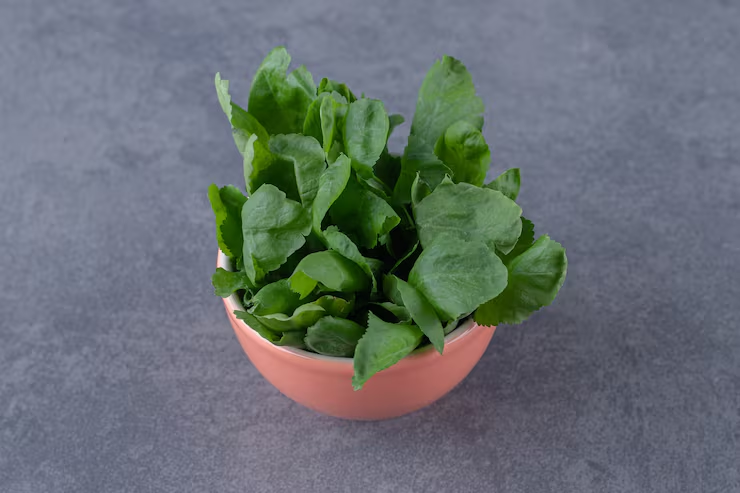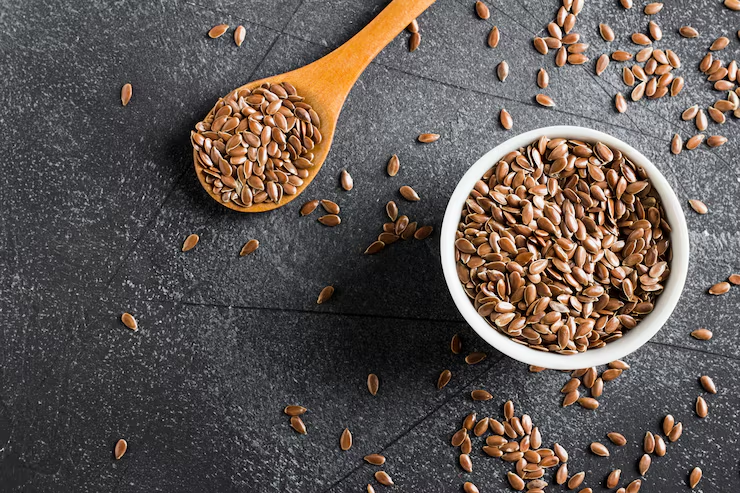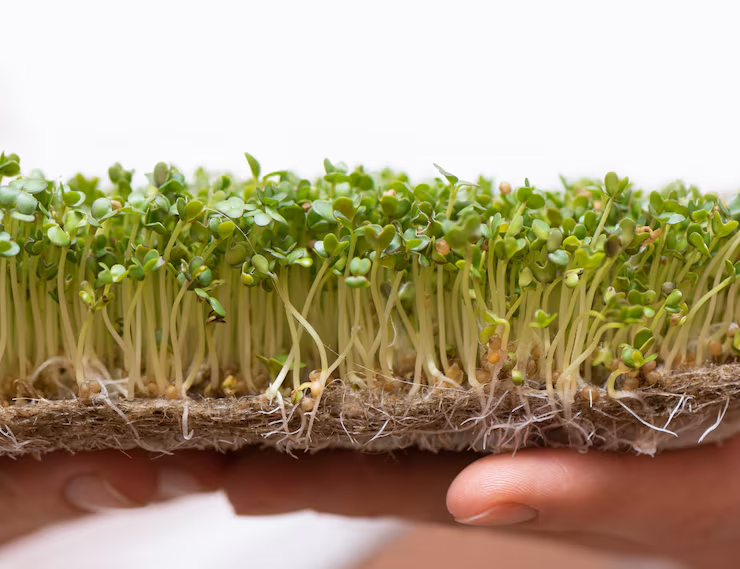Ten Superfoods for Great Health
-
1. Garlic

Garlic is a bulbous plant in the onion family has been valued for thousands of years for its medicinal qualities. It contains sulfur compounds like allicin, which are released when garlic is chopped or crushed and are believed to offer antimicrobial, antifungal, and antiviral properties.
Numerous studies suggest that garlic can reduce blood pressure, lower cholesterol levels, and decrease the risk of heart disease. It also contains antioxidants that protect against cell damage and aging. In folk medicine, garlic syrup made from garlic juice, lemon juice, and brown sugar is commonly used to relieve colds and respiratory congestion.
While generally safe in small quantities, excessive intake may cause gastrointestinal discomfort. Pregnant and breastfeeding women should consult a physician before using concentrated garlic supplements.
-
2. Watercress

Watercress is a fast-growing, aquatic plant rich in nutrients and phytochemicals. It contains high levels of vitamin K, vitamin C, calcium, and beta-carotene.
With its antioxidant-rich profile, watercress may help reduce oxidative stress and lower the risk of chronic diseases such as cardiovascular disease and certain cancers. Traditional herbalists use it to combat fatigue and purify the blood. A raw watercress salad or blended green smoothie can deliver a nutrient punch. However, its high oxalate content makes it unsuitable for individuals with kidney stones or compromised renal function.
-
3. Ginger

Ginger is widely known for its warming, stimulating properties and is a staple in both culinary and medicinal practices. It contains gingerol, a bioactive compound that exhibits strong antioxidant and anti-inflammatory effects. Scientific research supports ginger’s use in alleviating nausea, including morning sickness, motion sickness, and chemotherapy-induced nausea.
It also helps with pain management in osteoarthritis and menstrual cramps. Regular consumption may promote metabolic health and improve insulin sensitivity. Despite its many benefits, high doses should be avoided during pregnancy or by individuals taking anticoagulant medications due to its blood-thinning properties.
-
4. Nettle

Stinging nettle is a powerhouse of minerals such as iron, magnesium, calcium, and silica. It's widely used in herbal medicine to treat anemia, arthritis, and allergic conditions like hay fever. Nettle's anti-inflammatory and diuretic effects support detoxification and kidney function.
Drinking nettle tea may also help alleviate symptoms of benign prostatic hyperplasia in men. Only young, springtime leaves should be harvested with gloves, as mature leaves can be irritating. Nettle should be dried or cooked before consumption to deactivate the stinging hairs. Prolonged use of nettle tea should be avoided to prevent overburdening the kidneys.
-
5. Sunflower Seeds

Sunflower seeds are dense in nutrients like vitamin E, selenium, magnesium, and healthy unsaturated fats. These components help fight inflammation, lower blood pressure, and support cardiovascular health. They also contain phytosterols, plant compounds structurally similar to cholesterol, which help reduce cholesterol absorption in the intestines.
Regular consumption may improve skin health and immune function. A homemade seed mix with sunflower, sesame, and pumpkin seeds can be added to oatmeal or yogurt. Because of their oil content, sunflower seeds should be stored in airtight containers away from light to prevent rancidity.
-
6. Flax Seeds

Flax seeds are an excellent source of alpha-linolenic acid, a plant-based omega-3 fatty acid, as well as soluble and insoluble fiber. They are especially rich in lignans, compounds with antioxidant and phytoestrogen properties, which may contribute to reduced risks of breast and prostate cancer.
Flax can improve digestive health by acting as a mild laxative and may also help regulate blood sugar and cholesterol levels. Grinding flax seeds before consumption increases nutrient bioavailability, as whole seeds often pass through the gut undigested. Keep ground flax seeds refrigerated to prevent oxidation.
-
7. Lecithin

Lecithin is a phospholipid found naturally in egg yolks, soybeans, and sunflower seeds. It plays a key role in maintaining the integrity of cell membranes and supports fat metabolism and liver detoxification. Rich in choline, lecithin aids in neurotransmitter synthesis, which is vital for memory and cognitive function.
It also contributes to the emulsification of fats, which improves digestion. Lecithin granules should be consumed raw—sprinkled over cold dishes—to retain their properties. Always store in a dry, cool place and discard if the product becomes bitter or develops an off smell.
-
8. Bioflavonoids

Bioflavonoids, also known as flavonoids, are plant-based compounds with powerful antioxidant effects. They strengthen capillary walls, support vascular health, and may enhance the efficacy of vitamin C.
Found in a wide variety of fruits, vegetables, teas, and wines, certain bioflavonoids like quercetin and catechins have been studied for their anti-cancer, anti-inflammatory, and antiviral properties.
Green tea is a particularly good source and can boost metabolism and cardiovascular function. To maximize bioavailability, tea should be steeped at 70–80°C for 1–2 minutes.
-
9. Seaweed

Seaweed, including varieties like nori, wakame, and kelp, is a concentrated source of minerals such as iodine, calcium, magnesium, and iron. Iodine is essential for the synthesis of thyroid hormones, which regulate metabolism and growth.
Seaweed also contains polysaccharides like fucoidan, which may have anti-inflammatory, antiviral, and anticancer activities. It's commonly used in Asian diets and is known to support immune function and promote gut health due to its prebiotic fiber content. Seaweed should be consumed in moderation by those with thyroid disorders or people taking levothyroxine, due to its high iodine levels.
-
10. Sprouted Seeds

Sprouting triggers enzymatic processes that increase the bioavailability of nutrients and reduce anti-nutritional factors such as phytic acid. Sprouted seeds, legumes, and grains are richer in B vitamins, amino acids, and antioxidants compared to their unsprouted forms.
They also have improved digestibility and may contribute to better blood sugar regulation. Alfalfa, broccoli, radish, and mung bean sprouts are easy to grow at home with minimal equipment. Clean water, proper ventilation, and sterile containers are crucial to preventing bacterial contamination.

























